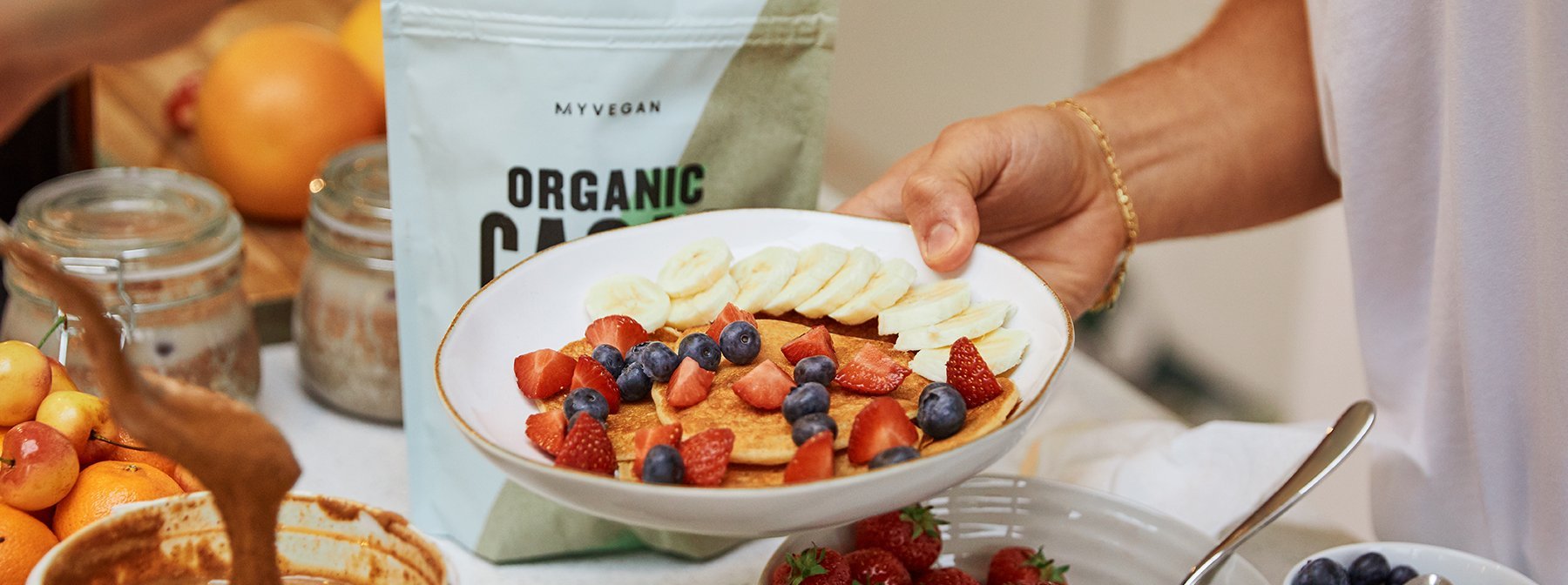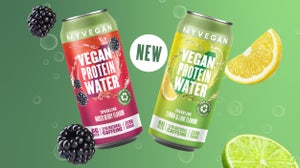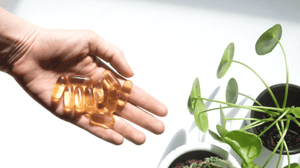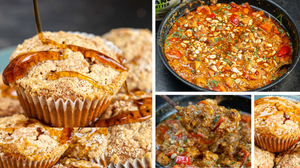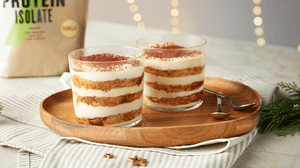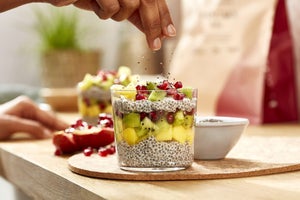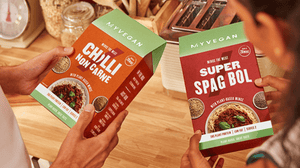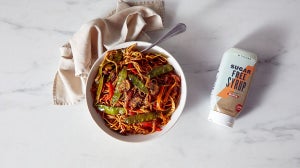
For most people, grocery shopping is a weekly task – one that can often require a lot of time and effort! If you have just started your vegan journey, it can be difficult to know what to buy. However, it is important to know that shopping as a vegan doesn’t have to be complicated.
Find the store cupboard staples that suit you best and use these as a base until you are feeling more confident. Keep reading to learn more about building a healthy and satisfyingveganshopping list.
- What Do Vegans Not Eat?
- How To Build A Vegan Shopping List
- Vegan Carbs
- Vegan Proteins
- Vegan Healthy Fats
- Vitamins & Minerals
- Vegan Fibre
- Transition Foods
- Vegan Substitutes
- Vegan Desserts
- Vegan Pantry Staples
- FAQs
Vegan Shopping List: A Guide For Beginners

What Do Vegans Not Eat?
Vegans choose to avoid animal products and foods that are derived from animal ingredients. This means that vegans stay away from meat (including poultry), fish and eggs. As dairy products and honey come directly from an animal, these foods are also excluded from a vegan diet.
How To Build A Vegan Shopping List
The aim for most meals is to try and have a balanced plate; if possible, include a protein source, a portion of healthy fat, and a serving of grains or starches as a source of carbohydrates. Alongside this, aim to include 1-3 portions of veg, which will help to boost the vitamin and mineral content of your meal.
The average male requires around 2500 calories per day, whilst females require around 2000 calories. These numbers will of course be different for everyone, depending on activity levels, body size, and various other factors. When building a shopping list, try and focus on foods you enjoy and will contribute towards your balanced plate.
Not sure if a vegan diet is the right choice for you? Check out this article for advice about going vegan.
Tip 1: Include foods that are quick and easy
Even though we all want to cook meals from scratch, sometimes life just gets in the way. Many of us are eating on the go, yet still want to eat a balanced diet; ready-made snacks and microwaveable meals can be used to help boost your protein content and support your health goals. Packets of microwave rice or quinoa can also often be recycled after use unlike larger, multi-use packets!
These days there is a huge range of on-the-go vegan snacks available.
Tip 2: Make sure to include a source of healthy fats
Whether you prefer peanut butter or avocadoes, coconut yoghurt or tahini, make sure to include a source of healthy fats in your shopping list. Many plant-based foods are low in fat content; however, we need some fat in our diets for the proper absorption of many vitamins and minerals. Furthermore, eating a low-fat diet can have detrimental effects, such as a dry skin, hair and nails.
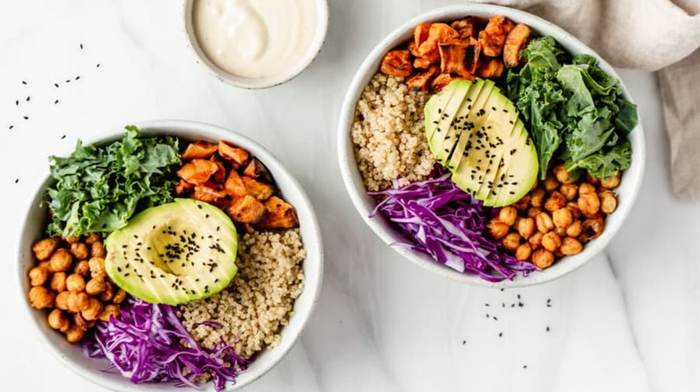
Tip 3: Have fun with cooking
It can be easy to fall into a rut of cooking the same things on repeat, but why not aim for cooking at least one new meal per week? This can help a vegan diet to still feel fun, and you may discover a love for cuisines you have previously never even heard of! Cooking styles that are easily adaptable to vegan diets include Japanese, Vietnamese, Middle Eastern, and South Indian.
Vegan Shopping List
When it comes to making a shopping list, planning is key! Check what you have at home already to avoid buying duplicates and see if you have lots of something that can serve as a base for several meals. Planning meals before heading to the shops can often be helpful but can be overwhelming. If in doubt, pick a few foods from each section below to make a complete shopping list.
Vegan Carbs
Carbohydrates are the preferred energy source for the brain; carbohydrates are used not only for fuelling workouts, but also to help keep you energised throughout the day. Try to avoid highly processed carbohydrates (usually sugary foods) as these can lead to mid-morning or mid-afternoon slumps. Healthy carbohydrate sources include:
Oats
Rice
Quinoa
Couscous
Potatoes (including sweet potatoes)
Wholegrain or seeded breads
Bananas
Low sugar cereals
Popcorn
Noodles
Vegan Proteins
Protein is important during all stages of life; it is needed for building and maintenance of muscle mass, as well as cellular repair and functioning. Including protein in snacks can help to boost your daily protein intake and is also likely to help keep you feeling fuller for longer.
Beans and legumes
Nuts (including nut butters)
Seeds eg. flaxseeds, chia seeds
Tofu
Tempeh
Vegan meat alternatives
- Protein powders
- Protein bars and snacks
Vegetables eg. broccoli, mushrooms, peas
Nutritional yeast
Vegan Healthy Fats
As mentioned already, it is important to include some sources of fat within the diet. This will allow for maximum vitamin and mineral absorption. Most vegan foods contain ‘healthy’ fats in the form of unsaturated fats; try to include no more than 20-30g of saturated fat per day, as these types of fats can have a negative impact on health.
Olive oil
Coconut oil
Vegetable oils (including rapeseed and sunflower oils)
Avocado
Nuts and nut butters
Tahini
Hummus
Coconut yoghurt
Olives
Seeds eg. flaxseeds, chia seeds
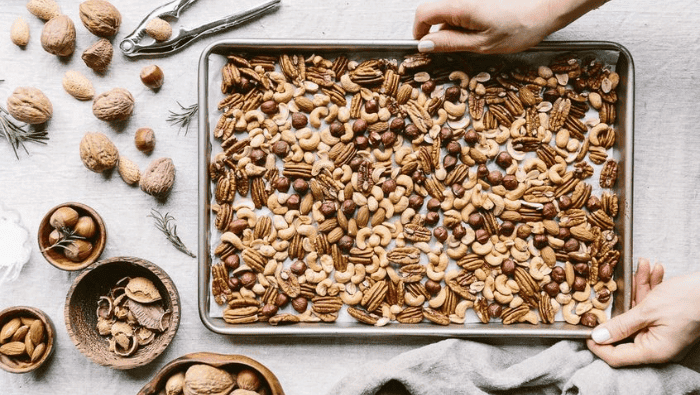
Vitamins & Minerals
Eating your ‘5-a-day’ will greatly contribute towards vitamin and mineral intake. Most fruit and vegetables are high in either fat-soluble or water-soluble vitamins, as well as containing multiple minerals (e.g. iron, calcium, selenium). It’s important to note that vegan diets can be lacking in vitamin B12, as this vitamin can only be found in animal products. It is therefore recommended that all vegans and plant-based eaters supplement with daily vitamin B12. All people in the northern hemisphere, regardless of diet, may benefit from taking vitamin D during winter months; sunshine is our main source of vitamin D, but exposure is limited between September-March.
Berries
Citrus fruits
Bananas
Dark leafy greens (including kale, cabbage, spinach, spring greens)
Seeds
Nuts and nut butters
Tomatoes
Sweet potatoes
Tofu
Nutritional yeast
Broccoli
Soy milk and other fortified dairy-free milks
Dark chocolate
Tahini
Bell peppers
Beetroot
Onions
Carrots
Kiwis
Vegan Fibre
Fibre is really important for a healthy gut;an adequate fibre intake can help to reduce bloating and other gastrointestinal (GI) upset, and help to keep our gut bacteria healthy. Fibre is also important for reducing cholesterol levels, which is important for cardiovascular health. Fibre is usually found alongside other macronutrients such as protein and fibre, especially in a vegan diet. Fruit and vegetables are also high in fibre – keep the skin on (if edible) for maximum fibre content.
Brassica vegetables e.g. broccoli, cauliflower, Brussel sprouts
Oats
Wholegrains
Apples
Bananas
Beans and legumes
Seeds
Quinoa
Hummus
Potatoes (skin on)
Transition Foods
When transitioning to a vegan diet it can be overwhelming to know where to start. Choosing plant-based alternatives of your favourite foods can be an easier introduction to a vegan diet, rather than choosing 100% ‘whole foods’ (aka unprocessed foods). These foods are usually quick and easy to cook, and often high in protein.
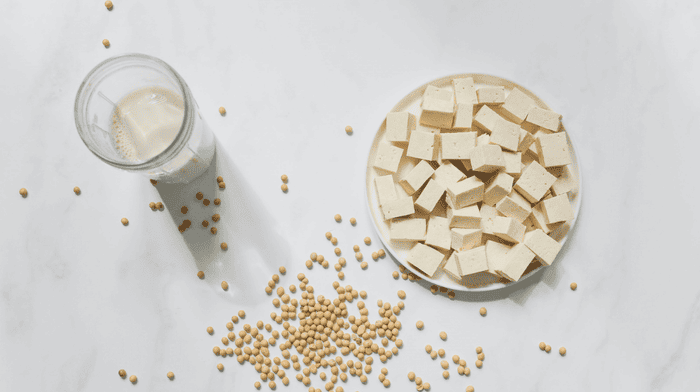
Vegan Substitutes
The most commonly found vegan substitutes include meat or dairy alternatives, as both these foods form a central part of a standard Western diet. Over the years, more and more options have become available, so take your time to try the different brands and find your favourites.
Meat Substitutes
Vegan nuggets
Vegan sausages
Vegan burgers
Vegan bacon
Vegan deli meats
Dairy Substitutes
Vegan cheese (usually made from soy or coconut)
Almond milk
Oat milk
Coconut yoghurt
Vegan cream (usually made from soy or oats)
Vegan Desserts
Following a vegan diet definitely does not mean missing out on dessert! There are a variety of vegan ‘milk’ or white style chocolates available, as well as traditional dark chocolate (just check for butter oil or whey in the ingredients if not labelled as vegan on the front). Some shop-bought desserts can also be ‘accidentally’ vegan, so taking the time to read labels can pay off!
Dates
Chocolate
Vegan crumbles
Cakes
Cookies
Fruit salad
Vegan ice cream or sorbets
Hot chocolate made with dairy-free milk
Pancakes
Dried fruits
Check out this selection of vegan recipes for dessert ideas.
Vegan Pantry Staples
Common foods that most vegans will have in their cupboards are the basics; often these can be bulk-bought and are versatile foods that work in multiple dishes .
Plant-based milks
Oats
Seeds eg. chia seeds, flaxseeds, hemp seeds
Nuts and nut butters
Rice
Pasta
Tins of beans and legumes
Olive oil
Nutritional yeast
Fresh fruit and vegetables
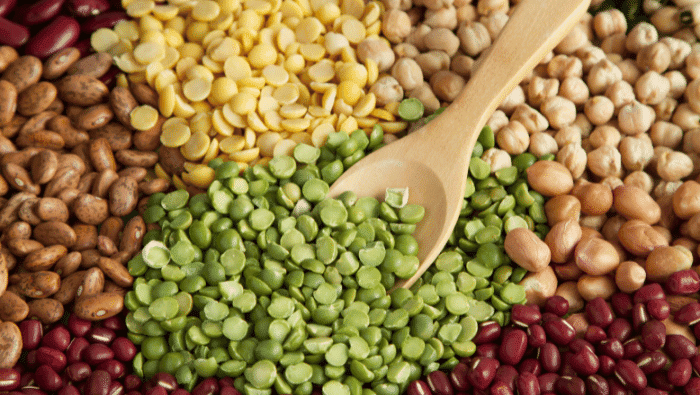
Take Home Message
In summary, eating a vegan diet doesn’t have to be difficult! Pick a few different foods from each of the categories above and have fun exploring new dishes and flavours. Don’t be afraid of using vegan meat and dairy alternatives, as these can be really beneficial when transitioning to a vegan diet.
For more expert advice, recipes, and exclusive offers, sign up to the Myvegan newsletter.
FAQs
What do I need to buy as a beginner vegan?
Many of the store cupboard staples listed here are versatile and budget friendly, so start here when planning your shop. Plant-based milks, starchy carbohydrates (oats, pasta, rice) and tins of beans or legumes are commonly used ingredients in most vegan recipes.
How to create a vegan shopping list?
If you have time, try to make a loose meal plan for the week, as this will help to guide your choices of certain foods (e.g. fruit and vegetables). If you aren’t sure where to start with your shopping list, try choosing several items from each of the food groups – proteins, carbohydrates, fats, then add in some additional fruit and vegetables for a nutrient boost.
What are some substitutes for vegans?
Tofu, tempeh and seitan are commonly used substitutes for meat. Many supermarkets also stock a range of ready to cook meat substitutes such as sausages or burgers.
What are plant-based food substitutes?
Many plant-based dairy substitutes are made from soy, almond or oats. Whether you have your tea with a splash of milk, or prefer a frothy barista style coffee, you’re sure to find a plant-based milk that meets your needs.
What vitamins and minerals do vegans commonly lack the most?
Most vegans should supplement with daily vitamin B12, as this nutrient can only be obtained through animal products. Vitamin D may also be a useful supplement if you live in colder climates.
- Office for National Statistics. Family spending in the UK: April 2020 to March 2021 [internet]. Office for National Statistics. Available from: https://www.ons.gov.uk/peoplepopulationandcommunity/personalandhouseholdfinances/expenditure/bulletins/familyspendingintheuk/april2020tomarch2021#family-spending-in-the-uk
- NHS. Vitamin B12 or folate deficiency anaemia [internet]. NHS. 2019. Available from: https://www.nhs.uk/conditions/vitamin-b12-or-folate-deficiency-anaemia/
- NHS. Vitamin D [internet]. NHS. 2020. Available from: https://www.nhs.uk/conditions/vitamins-and-minerals/vitamin-d/

